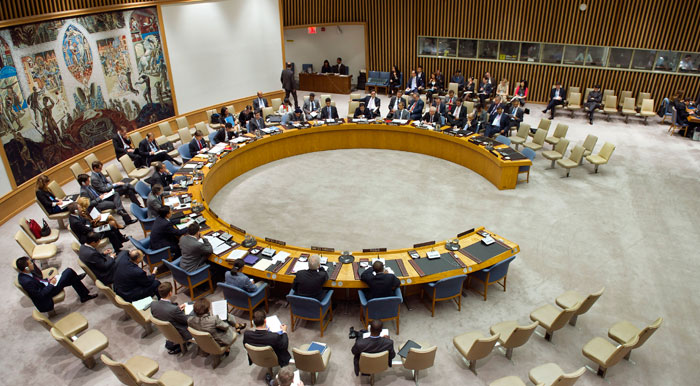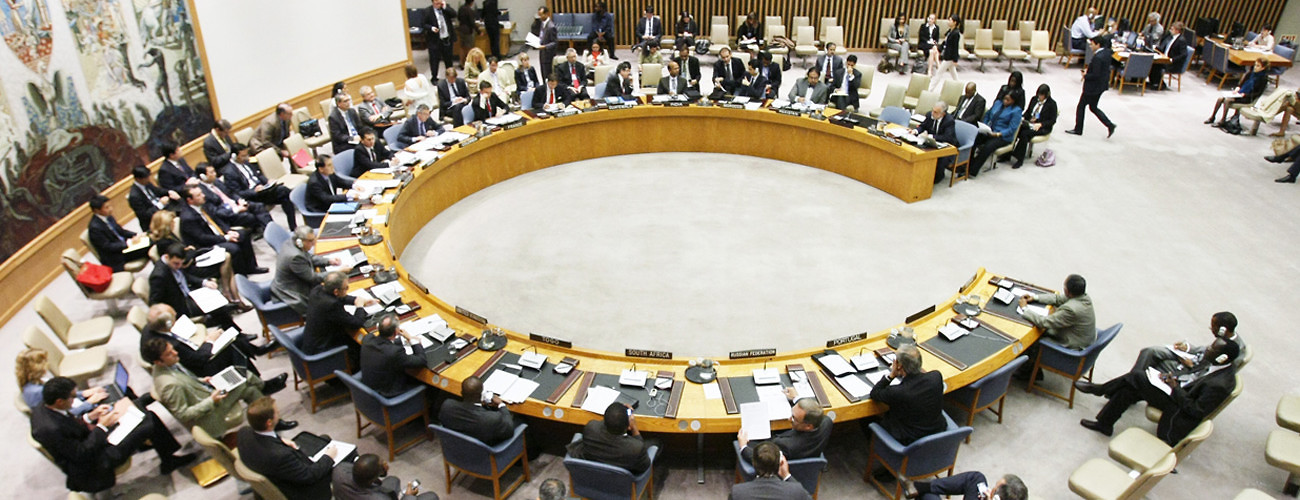
The Security Council is briefed on Iran sanctions, September 2012. (UN Photo/Eskinder Debebe)
This report assesses the United Nations Security Council’s current approach to drawing down sanctions in intrastate war situations. After examining broader questions surrounding the UN’s authority to impose sanctions and the corresponding limits on these powers, the report assesses criteria used by the Council to terminate sanctions. It observes that Council-mandated sanctions tend to last substantially longer than sanctions by regional organizations, and argues that when the objectives of a sanctions regime are met, sanctions should be amended, repealed, or terminated as soon as possible. In keeping with this goal, the report argues that benchmarks for drawing down sanctions should be concrete and realizable. It also suggests that the practice of applying incentives can be instrumental to the termination of conflict.
The report concludes by posing a series of questions that are intended to move the conversation towards a new set of best practices for the termination of multilateral sanctions in intrastate conflict situations:
• Should twelve-month sunset clauses be the default in multilateral sanctions practice, with departures from this norm (i.e., indefinite sanctions) requiring clear justification on the basis of the exigencies of the situation?
• How can termination language be clearly linked to objective criteria, so it is clear to the target and to the international community what behaviors are required to justify the lifting of sanctions?
• When a situation no longer presents a threat to the peace, should the Council terminate a sanctions regime and continue subsequent (nonsanctions) measures under a new resolution, or under Chapter VI?
• Should the Council consider the attitudes of regional organizations in deciding whether to continue or terminate sanctions?
Kristen E. Boon is Visiting Senior Adviser at the International Peace Institute and Professor of Law at Seton Hall Law School in Newark, New Jersey.








